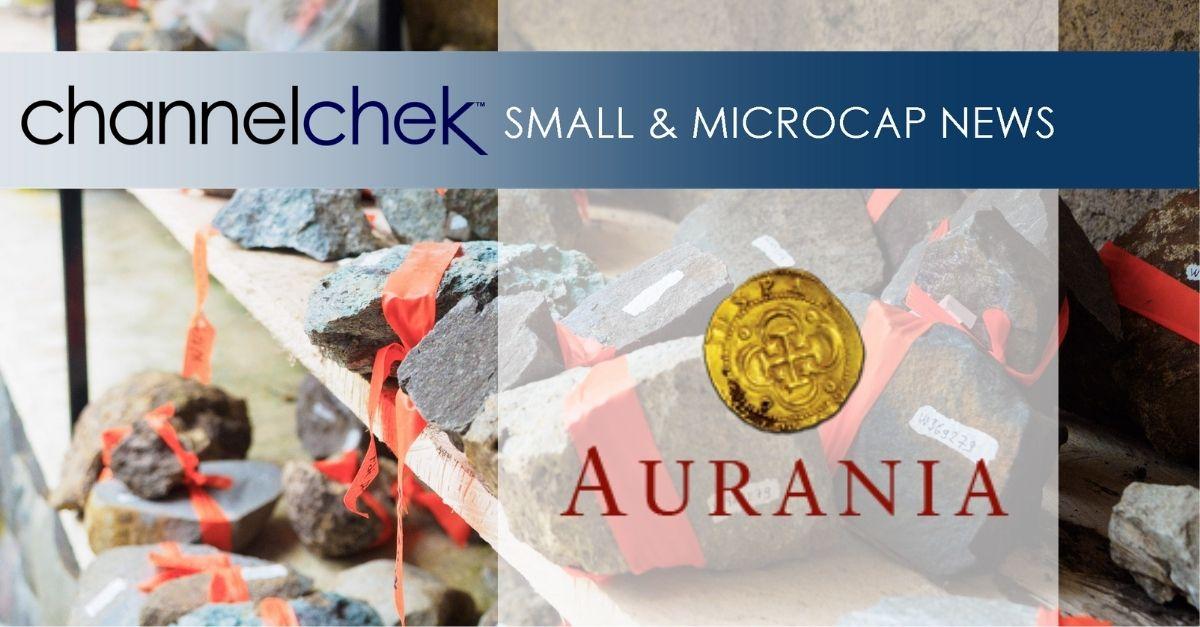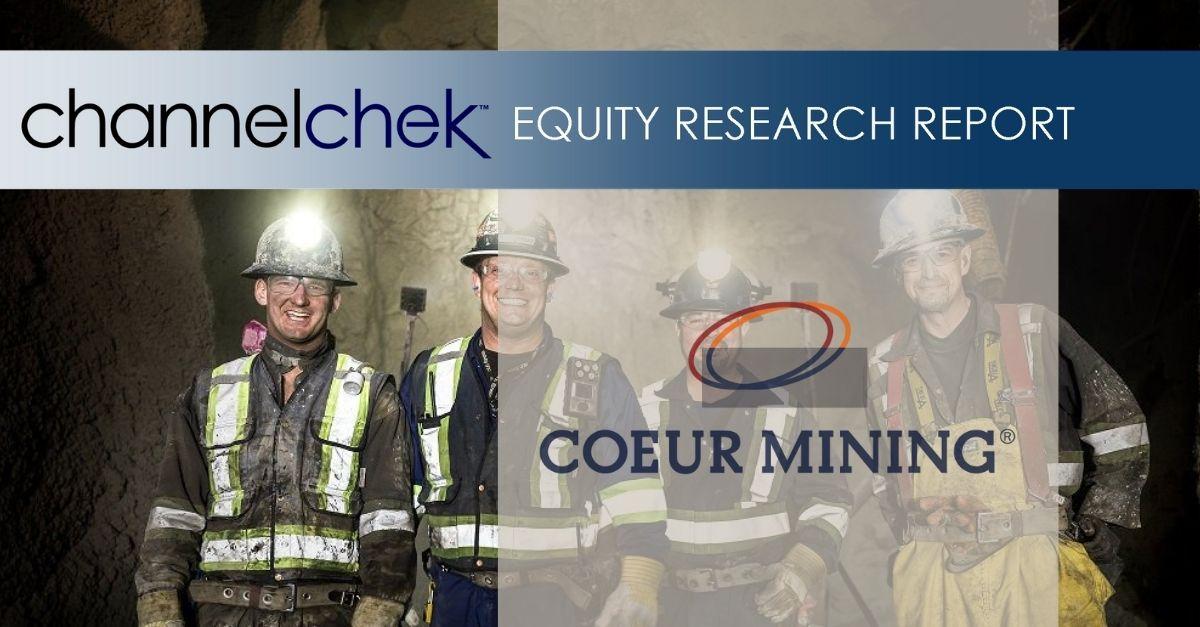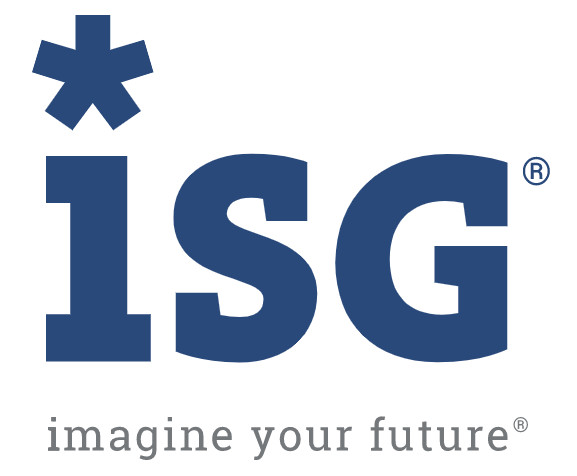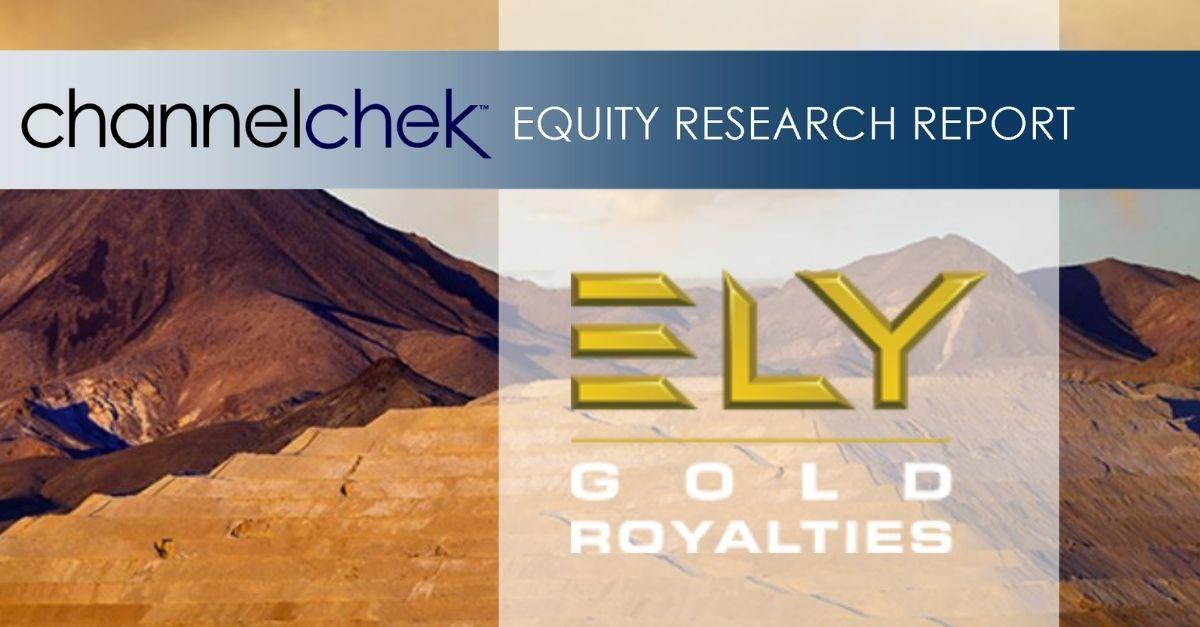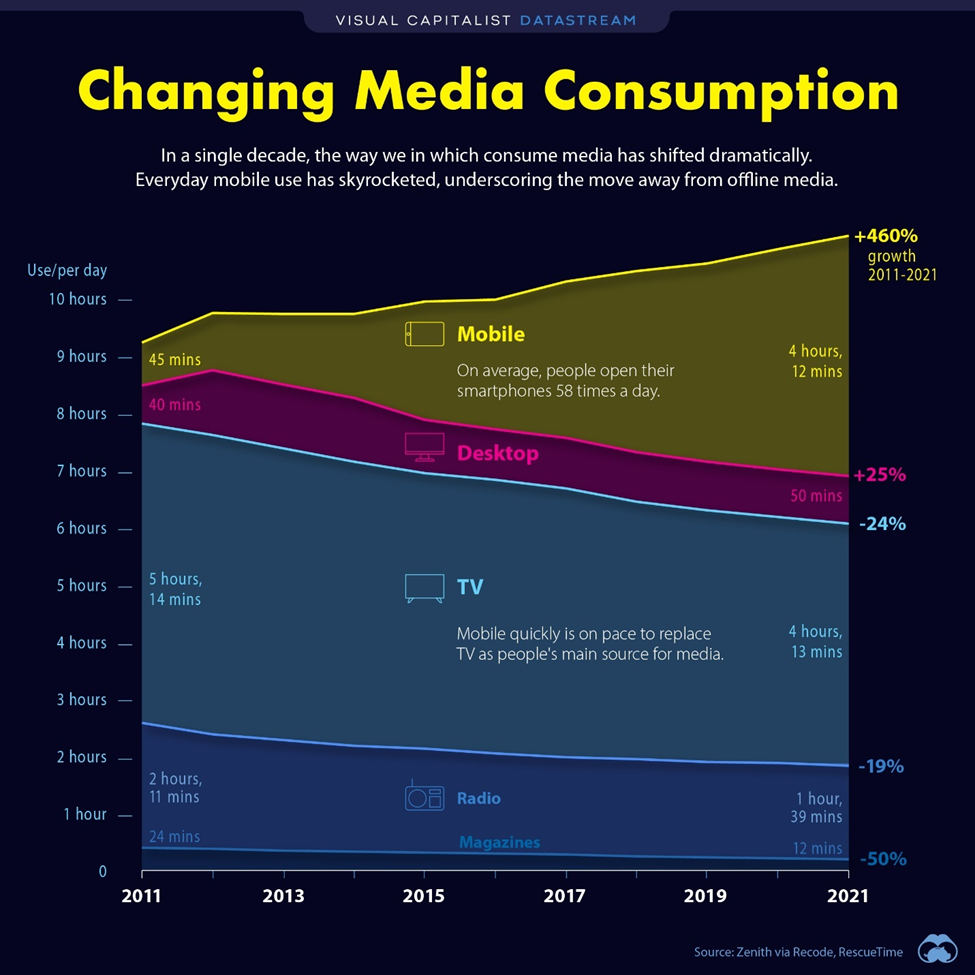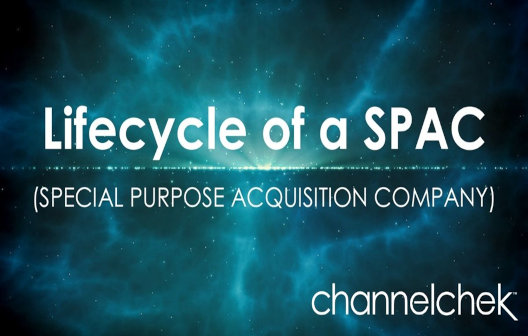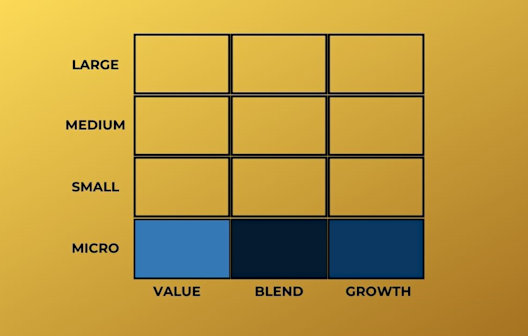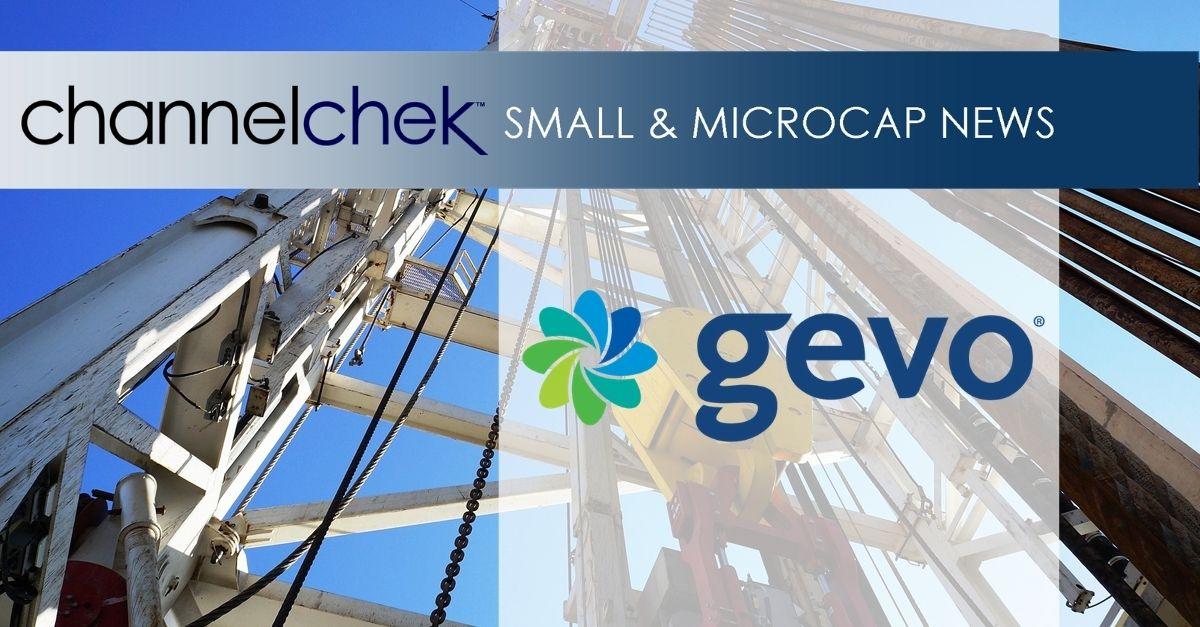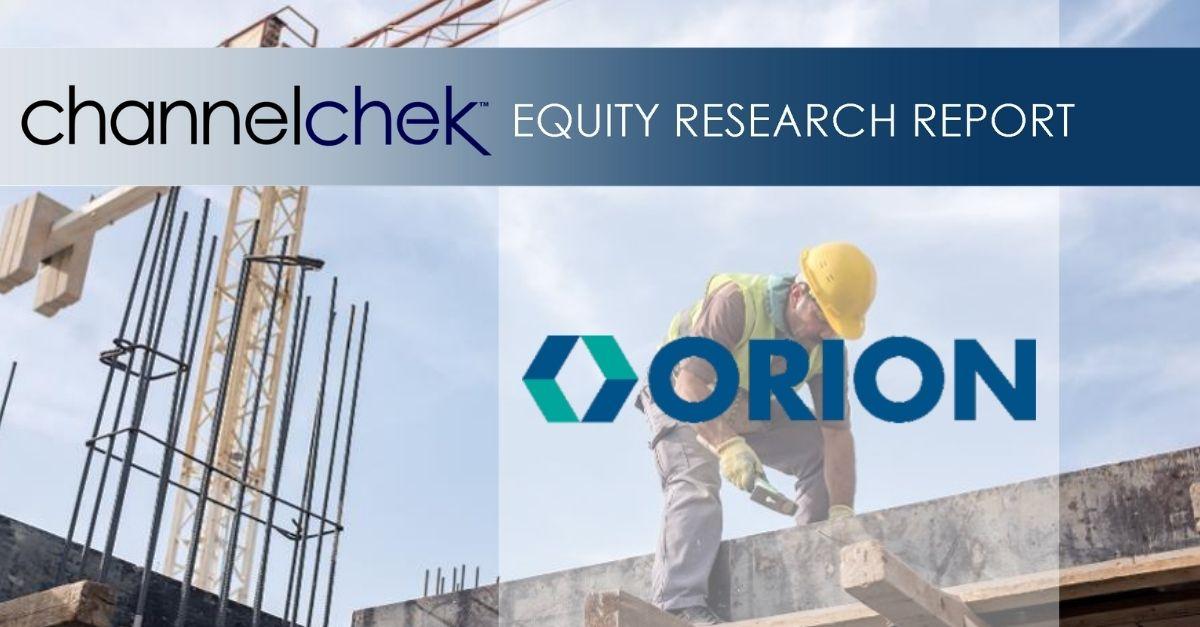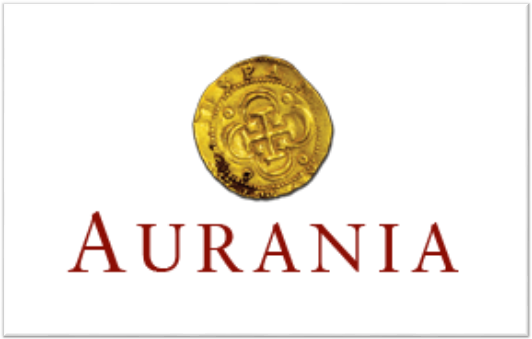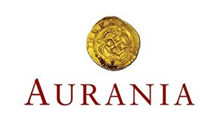
Aurania Confirms New Discovery That Extends Tiria-Shimpia to 22km
Toronto, Ontario, April 30, 2021 – Aurania Resources Ltd. (TSXV: ARU) (OTCQB: AUIAF) (Frankfurt: 20Q) (“Aurania” or the “Company”) reports on the discovery of Shimpia North, an area in which elevated metal values have been found in streams draining a ridge that is seven kilometres (“km”) long. Shimpia North is an extension to the high-grade silver-zinc-lead mineralization at Tiria-Shimpia in the Company’s Lost Cities – Cutucu Project (“Project”) in southeastern Ecuador. Shimpia North extends the Tiria-Shimpia target from 15 km to a total length of 22 km.
Outcropping mineralization in the first reconnaissance exploration in this new area gave a grade of 40 grams per tonne (“g/t”) silver in an extensively weathered gossan (iron-rich residue that remains after intense weathering of sulphide-rich rock) and, among other samples, a boulder of barite in a stream returned 19g/t silver, 6.5% lead and 1.1% zinc.
Aurania’s Chairman & CEO, Dr. Keith Barron commented, “Shimpia North appears to have the same character, style and mineralization type as Tiria-Shimpia, though it is displaced to the northwest. I consider it to be part of the same system. This may be the distal expression of the copper/silver -in-sediment system we have traced further to the south across country for 23 kilometres. In any case, the Cutucu is proving to be a rare case of a metal-rich basin, that though uplifted and exposed has appeared to not be eroded to significant extent. The siliceous sinters we find at Kuri-Yawi are evidence of the original land surface in the Jurassic, when we expect the mineralizing event took place. What I find astounding is that Cretaceous and younger cover rocks have been stripped off to just the right erosional level to expose mineralization. Otherwise, we would never have guessed it was there. Equally significant, our very large land parcel has allowed us to piece this story together. If we had had a postage stamp type parcel, we never would have guessed the magnitude of these mineralizing systems. Serendipity has worked in our favour.”
Rock-chip and stream sediment sampling that highlights the extent of the mineralized zone, corresponds closely with high potassium detected in radiometric data from the Company’s geophysical survey completed in 2017. The potassium enrichment feature extends approximately 10 km beyond the area investigated so far (Figure 1), providing an invaluable exploration guide to finding possible further extensions of the mineralized system. Though it is not yet confirmed, it is believed the potassium mineral is langbeinite, a potassium magnesium sulphate which could potentially occur with the other sulphates like barite, celestite, or gypsum. The Company has commenced selection of drill sites at the Tiria-Shimpia target area and expects to begin drilling in this quarter.
Geological Details of the Area Sampled at Shimpia North
The mineralization is sediment-hosted, found parallel to the sedimentary layering in limestone intercalated with sandstone. Hard rock samples contain galena (lead sulphide) and sphalerite (zinc sulphide) with barite (barium sulphate) and celestite (strontium sulphate). Gossan, weathered rock in which the sulphide minerals have been removed by oxidation to leave an iron oxide residue, has also been encountered. Although zinc and lead would have been leached out of the gossans, these residues allow us to map out the original extent of the sulphide-rich layers at surface, which could guide us to fresh, sulphide-rich rock below the weathered zone as illustrated in Figure 2.
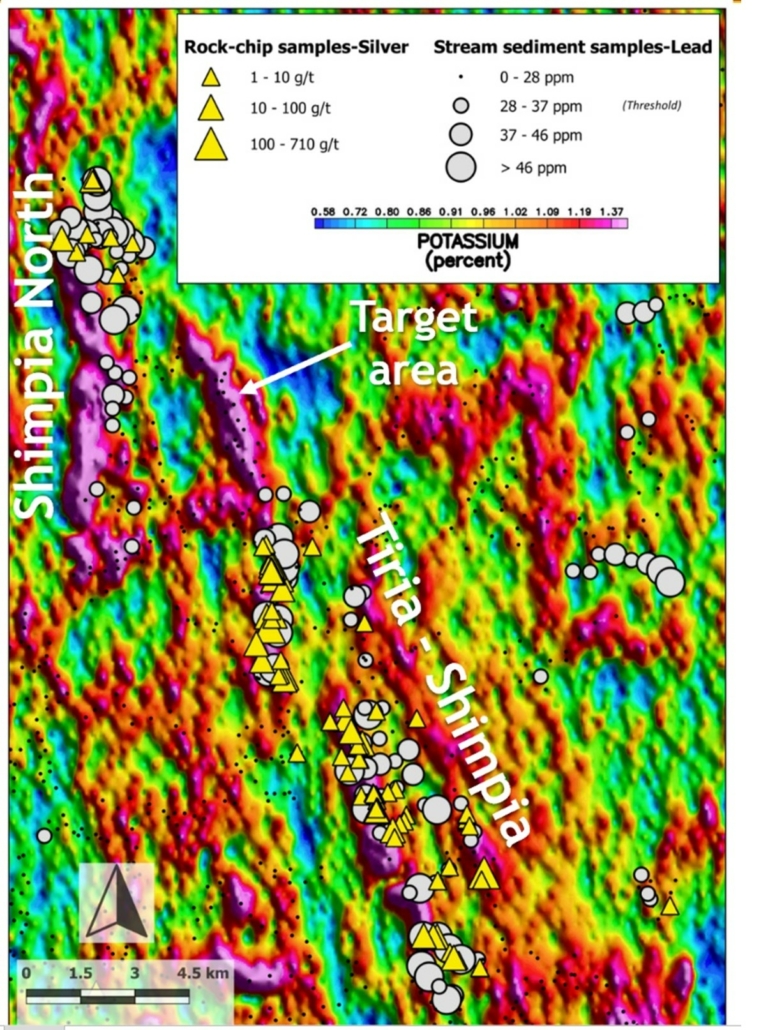
Figure 1. Image of potassium radiometric data from the geophysical survey that Aurania carried out over the Lost Cities – Cutucu Project in 2017 showing the distribution of silver in rock-chip samples and lead in stream sediment samples. (Red and purple are areas rich in potassium, blue and green have little potassium). Lead was selected to demonstrate the extent of the Tiria-Shimpia and Shimpia North target areas because it is not easily leached – hence its distribution provides a footprint that is faithful to the extent of the mineralization.
Table 1. Selected analytical results for grab samples of rocks from the Shimpia target (Ag is silver, Pb is lead and Zn is zinc).
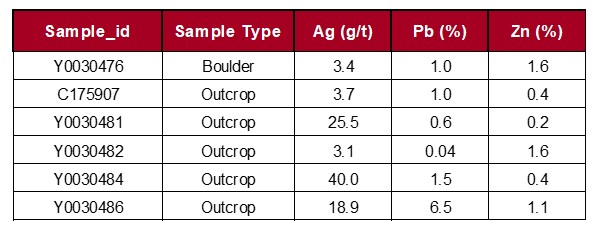
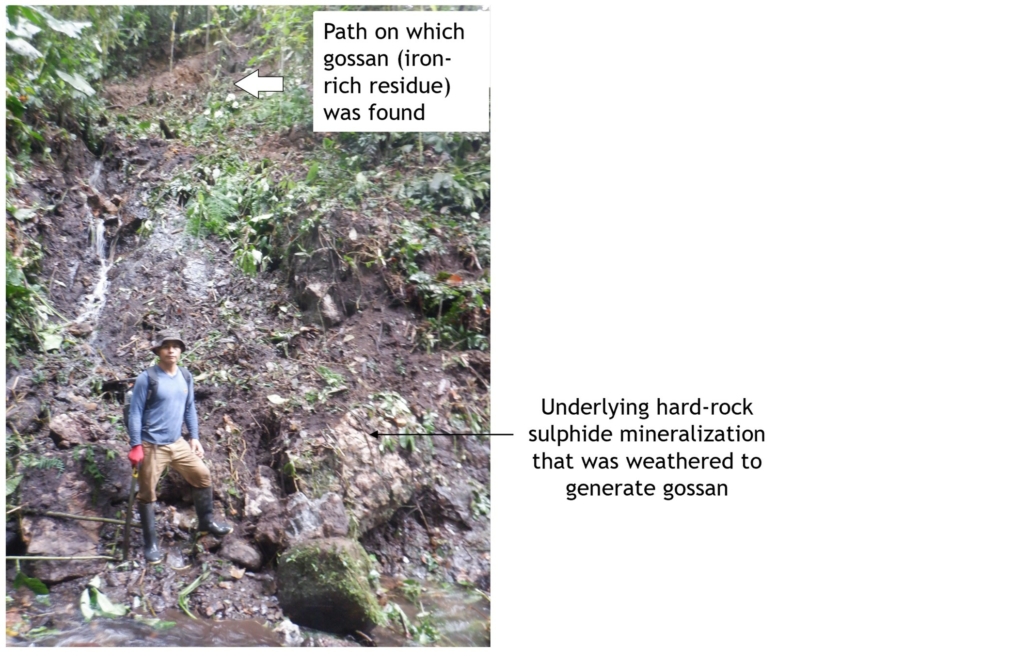
Figure 2. Gossan found on the jungle floor was excavated to reveal fresh, sulphide-bearing mineralization below the weathered layer at Shimpia North.
Sample Analysis & Quality Assurance / Quality Control
(“QAQC”)
Laboratories: The stream and rock samples were prepared for analysis at MS Analytical (“MSA”) in Cuenca, Ecuador, and the analyses were done in Vancouver, Canada.
Sample preparation: The rock samples were jaw-crushed to 10 mesh (crushed material passes through a mesh with apertures of 2 millimetres (“mm”)), from which a one-kilogram sub-sample was taken. The sub-sample was crushed to a grain size of 0.075mm and a 200-gram (“g”) split was set aside for analysis.
The stream sediment samples were wet-sieved through a 20 mesh (0.84mm) screen in the field and placed in cloth bags so that excess water could drain. The samples were transported from the field to Aurania’s field office in Macas, Ecuador and batched for delivery to at MSA in Cuenca, for drying and screening at 80 mesh (0.18mm sieve aperture). The -80 mesh silt was packaged by MSA for analysis.
Analytical procedure: Approximately 0.25g of rock pulp or -80# soil underwent four-acid digestion and analysis for 48 elements by ICP-MS. For the over-limit samples, those that had a grade of greater than 1% lead and zinc, or 100g/t silver, 0.4 grams of pulp underwent digestion in four acids and the resulting liquid was diluted and analyzed by ICP-MS.
Stream sediment: a 0.5g split of the -80 mesh fraction of the stream silt underwent digestion with aqua regia and the liquid was analyzed for 48 elements by ICP-MS.
Apart from being analyzed by ICP-MS, gold was also analyzed by fire assay with an ICP-AES finish.
QAQC: Aurania personnel inserted a certified standard pulp sample, alternating with a field blank, at approximate 20 sample intervals in all sample batches. Aurania’s analysis of results from its independent QAQC samples showed the batches reported on above, lie within acceptable limits. In addition, the labs reported that the analyses had passed their internal QAQC tests.
Qualified Person
The geological information contained in this news release has been verified and approved by Jean-Paul Pallier, MSc. Mr. Pallier is a designated EurGeol by the European Federation of Geologists and a Qualified Person as defined by National Instrument 43-101, Standards of Disclosure for Mineral Projects of the Canadian Securities Administrators.
About Aurania
Aurania is a mineral exploration company engaged in the identification, evaluation, acquisition and exploration of mineral property interests, with a focus on precious metals and copper in South America. Its flagship asset, The Lost Cities – Cutucu Project, is located in the Jurassic Metallogenic Belt in the eastern foothills of the Andes mountain range of southeastern Ecuador.
Information on Aurania and technical reports are available at www.aurania.com and www.sedar.com, as well as on Facebook at https://www.facebook.com/auranialtd/, Twitter at https://twitter.com/auranialtd, and LinkedIn at https://www.linkedin.com/company/aurania-resources-ltd-.
For further information, please contact:
Carolyn Muir
VP Investor Relations
Aurania Resources Ltd.
(416) 367-3200
carolyn.muir@aurania.com
Dr. Richard Spencer
President
Aurania Resources Ltd.
(416) 367-3200
richard.spencer@aurania.com
Neither the TSX Venture Exchange nor its Regulation Services Provider (as that term is defined in the policies of the TSX Venture Exchange) accepts responsibility for the adequacy or accuracy of this release.
Forward-Looking Statements
This news release may contain forward-looking information that involves substantial known and unknown risks and uncertainties, most of which are beyond the control of Aurania. Forward-looking statements include estimates and statements that describe Aurania’s future plans, objectives or goals, including words to the effect that Aurania or its management expects a stated condition or result to occur. Forward-looking statements may be identified by such terms as “believes”, “anticipates”, “expects”, “estimates”, “may”, “could”, “would”, “will”, or “plan”. Since forward-looking statements are based on assumptions and address future events and conditions, by their very nature they involve inherent risks and uncertainties. Although these statements are based on information currently available to Aurania, Aurania provides no assurance that actual results will meet management’s expectations. Risks, uncertainties and other factors involved with forward-looking information could cause actual events, results, performance, prospects and opportunities to differ materially from those expressed or implied by such forward-looking information. Forward looking information in this news release includes, but is not limited to Aurania’s objectives, goals or future plans, statements, exploration results, potential mineralization, the corporation’s portfolio, treasury, management team and enhanced capital markets profile, the estimation of mineral resources, exploration, timing of the commencement of operations and estimates of market conditions. Factors that could cause actual results to differ materially from such forward-looking information include, but are not limited to, failure to identify mineral resources, failure to convert estimated mineral resources to reserves, the inability to complete a feasibility study which recommends a production decision, the preliminary nature of metallurgical test results, delays in obtaining or failures to obtain required governmental, regulatory, environmental or other project approvals, political risks, inability to fulfill the duty to accommodate indigenous peoples, uncertainties relating to the availability and costs of financing needed in the future, changes in equity markets, inflation, changes in exchange rates, fluctuations in commodity prices, delays in the development of projects, capital and operating costs varying significantly from estimates and the other risks involved in the mineral exploration and development industry, the effects of COVID-19 on the business of the Company including but not limited to the effects of COVID-19 on the price of commodities, capital market conditions, restrictions on labour and international travel and supply chains, and those risks set out in Aurania’s public documents filed on SEDAR. Although Aurania believes that the assumptions and factors used in preparing the forward-looking information in this news release are reasonable, undue reliance should not be placed on such information, which only applies as of the date of this news release, and no assurance can be given that such events will occur in the disclosed time frames or at all. Aurania disclaims any intention or obligation to update or revise any forward-looking information, whether as a result of new information, future events or otherwise, other than as required by law.
